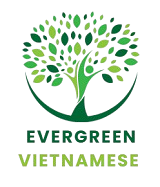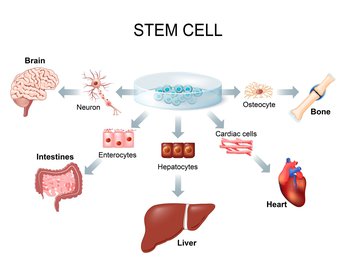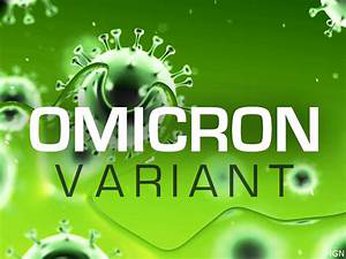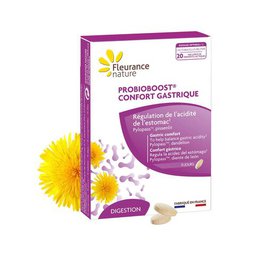Mind-body therapies focus on the relationship between the mind and body to help treat or manage a condition. Some examples include:
Meditation is an ancient practice that is prominent in religions such as Hinduism and Buddhism. Today, there are many forms of meditation people can try; some are religious in nature, and some not.
Biofeedback involves the use of machines that measure unconscious or involuntary bodily processes, such as heart rate or muscle contractions. The device then converts the information into audio, visual, or tactile signals. A therapist then helps someone learn to control these signals.
Biofeedback can help people learn to relax painful muscles, alter their mental state, and more. Its most common usesTrusted Source include management of neuromuscular disorders, chronic pain, anxiety , and incontinence .
Hypnosis involves someone going into a deep state of relaxation and focusing on suggestions a clinician makes while the person is in a hypnotic state. The aim is for the suggestions to help change a person’s mental state, resulting in health benefits.
Most studies on yoga’s benefits have been with small numbers of people, so more research is still needed.
Biologically based therapies use substances such as plants and foods to improve health or treat conditions. Some examples include:
This includes the use of plants or plant compounds for medical benefits. There are many examplesTrusted Source of plants that people use to treat symptoms or conditions. Popular examples include:
Dietary approaches to medicine involve using food itself to treat certain conditions. This may mean eating foods with specific medicinal properties, following diets that contain certain nutrients, or avoiding some foods altogether.
These therapies aim to help people by manipulating invisible energy fields. According to some medical systems and practices, the energy around the body can influence health. By addressing disturbances or blockages in energy, practitioners believe it is possible to treat certain conditions.
Some examples of biofield therapies include:
Therapeutic touch
This involves a practitioner running their hands over or gently touching someone’s body to control or restore their flow of energy.
Reiki
Reiki originally comes from Japan. During reiki treatments, practitioners try to control energy in the body by using their hands. This may involve placing them on someone, just above them, or even working at a distance from a person. The aim is to free blocked energy and improve the body’s natural healing abilities.
Body-based therapies involve a therapist physically moving one or more parts of a person’s body for therapeutic benefits. Common examples include:
Massage
During massage , a practitioner uses their fingers, hands, or tools to knead, rub, or press the body’s soft tissue. It is an ancient therapy, and people have practiced it in most culturesTrusted Source throughout history. There are many types of massage, each of which involves different techniques, rhythms, and areas of the body.
Reflexology
Reflexology involves pressing or manipulating pressure points in the hands or feet. The idea behind it is that a practitioner can target and help other parts of the body. It can also promote relaxation.
Chiropractic therapy
This therapy manipulates someone’s muscles, tissues, or bones to help the body heal from musculoskeletal conditions or help someone cope with a condition that may be causing pain.
Whole medicine systems refer to sets of beliefs and practices that work together. These systems have typically evolved over hundreds of years. Some of the most well-known methods include:
Traditional Chinese medicine (TCM)
TCM is a complex system based on a belief in two opposite forces: yin and yang. For the body and mind to be in good health, practitioners believe that yin and yang must be in balance. TCM practitioners use a combination of herbal, mind-body, and physical therapies to achieve this.
TCM is over 2,000 years oldTrusted Source and is where practices such as acupuncture and tai chi have their origins.
Ayurvedic medicine
Ayurveda is a holistic health system that developed in India thousands of years agoTrusted Source . Ayurvedic practitioners believe that everyone is made up of five elements: air, fire, water, earth, and ether (or space). The way these elements combine dictates how the body works.
Homeopathic medicine
Homeopathy comes from Germany and is around 200 years oldTrusted Source . It focuses on two theories: that “like cures like” and that the lower the dose is of something, the more effective it is.
There is little evidence that homeopathy works for any condition. Additionally, some substances homeopathy uses are toxic, such as white arsenic and deadly nightshade.
Naturopathic medicine
Naturopathy is a system that includes a mixture of traditional and alternative approaches to medicine. It focuses on using natural and noninvasive ingredients and techniques, such as herbs, exercise therapy, dietary changes, and massage, among many othersTrusted Source .
In some U.S. states, naturopathic doctors can also prescribe pharmaceutical medications, but this varies based on location.
Many people debate whether conventional medicine is better than alternative medicine. When comparing them, it is important to consider the following:
Scientific evidence
One of the main benefits of standard medical care is that it undergoes rigorous research. Through clinical trials and studies, scientists can determine whether certain techniques, medicines, and courses of treatment are effective and safe.
Many scientists use these methods to study alternative medicine, too. However, the data is not always as abundant or reliable. Some types of alternative medicine, such as homeopathy, have very little scientific evidence to support them.
There are exceptions to this. Some types of alternative therapy have been well-researched by scientists, so doctors can safely recommend them to patients. Examples of this include yoga and meditation, as well as acupuncture. The American College of Physicians recommends acupuncture as a first-line treatment for lower back pain.
Ingredients
Some people believe that alternative medicine is better than conventional medicine because it often focuses on natural substances, which some believe to be safer, gentler, or more suitable for the human body than manufactured medicines.
However, as with conventional medicines, natural medicines can also causeTrusted Source side effects, drug interactions, and poisoning at the wrong dosages. Some natural products can also contain harmful substances not listed on the label. For example, some Ayurvedic productsTrusted Source contain naturally occurring toxins, such as mercury or lead.
Even when natural products are safe, it can be more difficult for companies to ensure they have consistent levels of potency and purity. Third-party testing can reduce this problem, but not all companies use it.
Accessibility
For some, conventional medicine is more difficult to access than the alternative treatments available within their communities. In comparison to the U.S. healthcare system, alternative medicine may be:
more affordable
more familiar, or easier to understand
more consistent with a person’s views or culture
closer to where a person lives
easier to practice independently
These are important factors and can make alternative medicine more appealing. People who have had negative experiences of healthcare may also prefer to seek alternative options.
Alternative medicine refers to medical practices that are not mainstream. In the U.S., people use this term to refer to a wide range of therapies and medical systems, from Ayurveda to reflexology.
Whatever form of treatment a person chooses, it is always important to consider the evidence that supports it, potential risks and side effects, and whether the practitioner is fully qualified. Where possible, always speak with a medical doctor before trying alternative treatments, as they can have risks.
Source: Alternative medicine: Definition, examples, benefits, and risks (medicalnewstoday.com)














